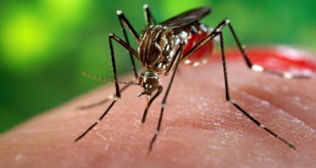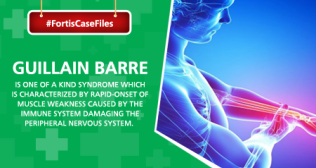
Understanding Normal Body Temperature: A Comprehensive Guide
Introduction
Your body temperature is a vital parameter that serves as a hallmark of health and refers to the degree of heat generated and maintained by the human body. It reflects the intricate balance between the body’s metabolic processes, environmental factors, and physiological responses. The normal human body temperature fluctuates depending on various factors, and monitoring it plays a pivotal role in diagnosing and managing multiple medical conditions. The body employs different mechanisms to regulate temperature through the hypothalamus in the brain, which acts as a thermostat.
What’s The Normal Body Temperature?
The normal body temperature for most adults is around 98.6 °F (37 °C), but it can vary slightly among individuals and throughout the day.
The normal body temperature ranges for different age groups are as follows:
- Infants (0–2 years): 97.9–100.4 °F (36.6–38 °C)
- Children (2–12 years): 97–99 °F (36.1–37.2 °C)
- Adolescents and Adults (12 years and older): 97–99 °F (36.1–37.2 °C)
The body temperature can rise above (hyperthermia/ fever) or drop below (hypothermia) the normal range, depending on various factors.
Factors Influencing Body Temperature
- Biological factors such as age, gender, body type, and size
- External factors, such as exposure to sunlight, ambient temperature, and humidity
- Internal factors, like metabolic rate, hormonal fluctuations, infection, hydration, and specific ailments
- Body temperature follows a circadian rhythm, typically peaking in the late afternoon and reaching its lowest point during sleep
- The level of activity, like exercise, etc.
How do Variations in Body Temperature Affect the Body?
- Heat Exposure: High temperatures can cause dehydration, heat exhaustion, and heat stroke, causing dizziness, weakness, and altered mental state.
- Cold Exposure: Prolonged exposure to cold can lead to frostbite and trigger inflammatory responses.
- Immune Response: Fever helps the body fight infection by boosting immune function.
- Circulatory System: Blood vessels adjust to temperature changes to regulate heat loss or retention through vessel dilation and fluid balance.
- Respiratory System: Cold temperatures trigger conditions like asthma, while heat and humidity can cause breathing issues.
- Metabolic Rate: Cold exposure increases metabolism to maintain body temperature.
Ways To Measure Fever
- Oral: Taking temperature orally using a thermometer placed under the tongue
- Axillary: Placing a thermometer under the armpit
- Rectal: Rectal temperature measurement for infants and young children
- Ear and Forehead: Placing infrared thermometers on the ear canal or forehead
- Remote Monitoring: Wearing temperature-measuring sensors and watches
How to Normalize Your Body Temperature?
Here are some practical tips to help you regulate your body temperature during different conditions.
During Hot Conditions
- Drink plenty of fluids to prevent dehydration and regulate body temperature.
- Wear lightweight, breathable clothing to allow sweat evaporation and cooling.
- Take showers and use damp cloths or ice packs on pulse points to cool the body.
- Avoid alcohol and caffeine to prevent dehydration.
- Eat lighter meals, like salad, etc., to decrease metabolic heat production.
- Avoid direct and prolonged exposure to the sun.
- Reduce fever with medicines, rest, and hydration.
During Cold Conditions
- Engage in light indoor activities to maintain blood circulation.
- Wear warm clothes to trap the body heat.
- Avoid alcohol and increase the intake of water to prevent frostbite.
From the intricacies of heat regulation to its impact on daily life, temperature remains a fascinating aspect of human physiology. So, whether you’re seeking relief from the heat of summer or bundling up against winter’s chill, take a moment to reflect on this vital aspect of human physiology that holds the rhythm of life within the ebb and flow of temperature.
Popular Searches :
Hospitals: Cancer Hospital in Delhi | Best Heart Hospital in Delhi | Hospital in Amritsar | Hospital in Ludhiana | Hospitals in Mohali | Hospital in Faridabad | Hospitals in Gurgaon | Best Hospital in Jaipur | Hospitals in Greater Noida | Hospitals in Noida | Best Kidney Hospital in Kolkata | Best Hospital in Kolkata | Hospitals in Rajajinagar Bangalore | Hospitals in Richmond Road Bangalore | Hospitals in Nagarbhavi Bangalore | Hospital in Kalyan West | Hospitals in Mulund | Best Hospital in India | | Cardiology Hospital in India | Best Cancer Hospital in India | Best Cardiology Hospital in India | Best Oncology Hospital In India | Best Cancer Hospital in Delhi | Best Liver Transplant Hospital in India
Doctors: Dr. Rana Patir | Dr. Rajesh Benny | Dr. Rahul Bhargava | Dr. Jayant Arora | Dr. Anoop Misra | Dr. Manu Tiwari | Dr. Praveer Agarwal | Dr. Arup Ratan Dutta | Dr. Meenakshi Ahuja | Dr. Anoop Jhurani | Dr. Shivaji Basu | Dr. Subhash Jangid | Dr. Atul Mathur | Dr. Gurinder Bedi | Dr. Monika Wadhawan | Dr. Debasis Datta | Dr. Shrinivas Narayan | Dr. Praveen Gupta | Dr. Nitin Jha | Dr. Raghu Nagaraj | Dr. Ashok Seth | Dr. Sandeep Vaishya | Dr. Atul Mishra | Dr. Z S Meharwal | Dr. Ajay Bhalla | Dr. Atul Kumar Mittal | Dr. Arvind Kumar Khurana | Dr. Narayan Hulse | Dr. Samir Parikh | Dr. Amit Javed | Dr. Narayan Banerjee | Dr. Bimlesh Dhar Pandey | Dr. Arghya Chattopadhyay | Dr. G.R. Vijay Kumar | Dr Ashok Gupta | Dr. Gourdas Choudhuri | Dr. Sushrut Singh | Dr. N.C. Krishnamani | Dr. Atampreet Singh | Dr. Vivek Jawali | Dr. Sanjeev Gulati | Dr. Amite Pankaj Aggarwal | Dr. Ajay Kaul | Dr. Sunita Varma | Dr. Manoj Kumar Goel | Dr. R Muralidharan | Dr. Sushmita Roychowdhury | Dr. T.S. MAHANT | Dr. UDIPTA RAY | Dr. Aparna Jaswal | Dr. Ravul Jindal | Dr. Savyasachi Saxena | Dr. Ajay Kumar Kriplani | Dr. Nitesh Rohatgi | Dr. Anupam Jindal |
Specialties: Heart Lung Transplant | Orthopedic | Cardiology Interventional | Obstetrics & Gynaecology | Onco Radiation | Neurosurgery | Interventional Cardiology | Gastroenterologist in Jaipur | Neuro Physician | Gynecologist in Kolkata | Best Neurologist in India | Liver Transfer |


















